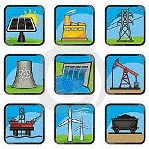Department of Agricultural Economics: Undergraduate Research

Op-Eds from ENSC230 Energy and the Environment: Economics and Policies
Date of this Version
Fall 12-11-2015
Document Type
Editorial
Citation
Op-ed from ENSC 230. Energy and the Environment: Economics and Policy, University of Nebraska-Lincoln, Department of Agricultural Economics, Fall 2015
Abstract
The current economic standing of the United States is nothing like it was back in the 20’s when “business was booming”. There are some businesses today that are still above water despite these difficult times and they are mainly fossil fuel companies. The United States, along with other develOp-ed and developing countries, has a strong and crippling addiction to these cheap and dirty fuels. The goal of several recent environmental conventions has been to find a way to decrease the amount harmful gas that is emitted from these fuels into our atmosphere. Clean energy technologies always seem to be the solution but first we must incentivize the market to fund these innovations. William Nordhaus, an economist and Yale economics professor, wrote a paper titled “Carbon Taxes to Move Toward Fiscal Sustainability” where he paints a picture of what this tax needs to look like to be effective. It is extremely important that this tax be implemented correctly, and that it be aimed at the carbon emissions and not the fossil fuels. As Sedjo points out “taxing the fossil fuel provides no incentive to develop or utilize technologies such as carbon capture and storage.” The carbon tax has a great amount of potential to raise revenue over the next decades, inspire innovation for clean technologies, and help to meet environmental standards for climate change.
Included in
Environmental Indicators and Impact Assessment Commons, Natural Resources and Conservation Commons, Oil, Gas, and Energy Commons


Comments
Copyright 2015, Anna Wistrom. Used by permission